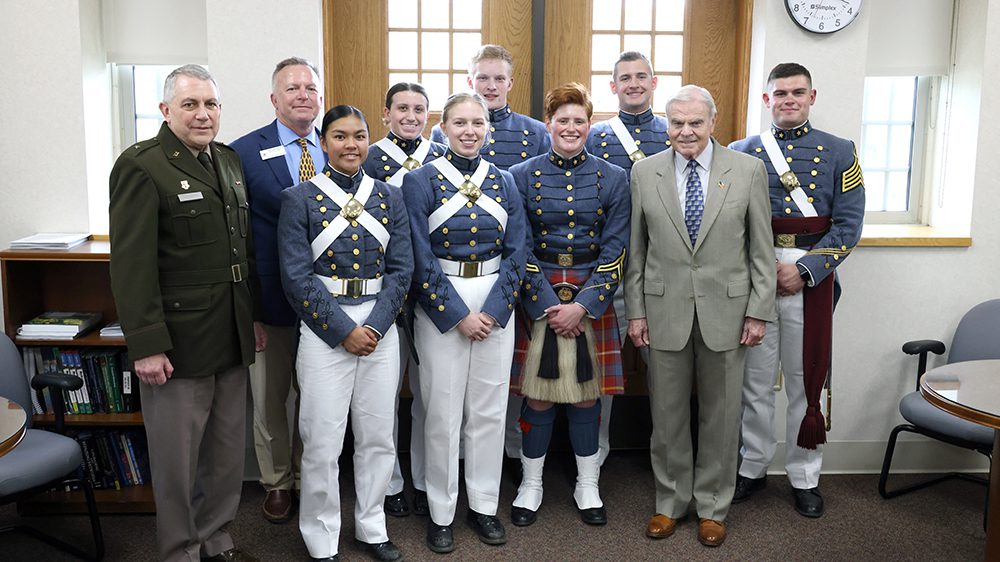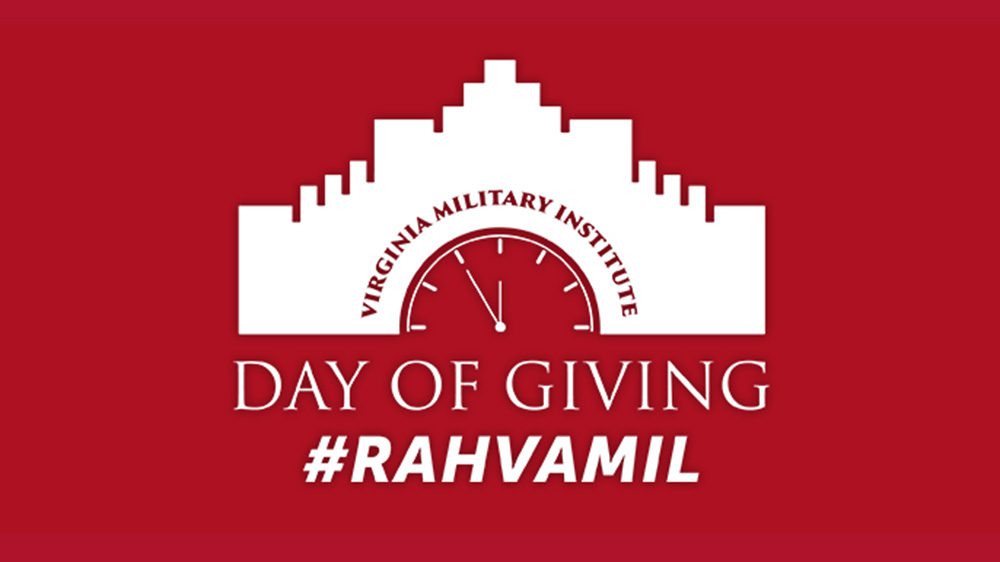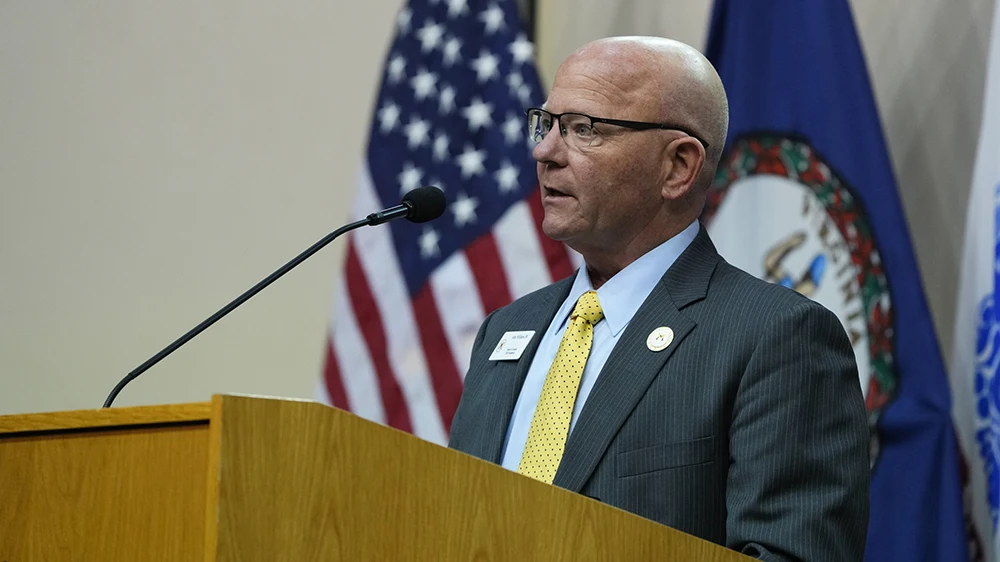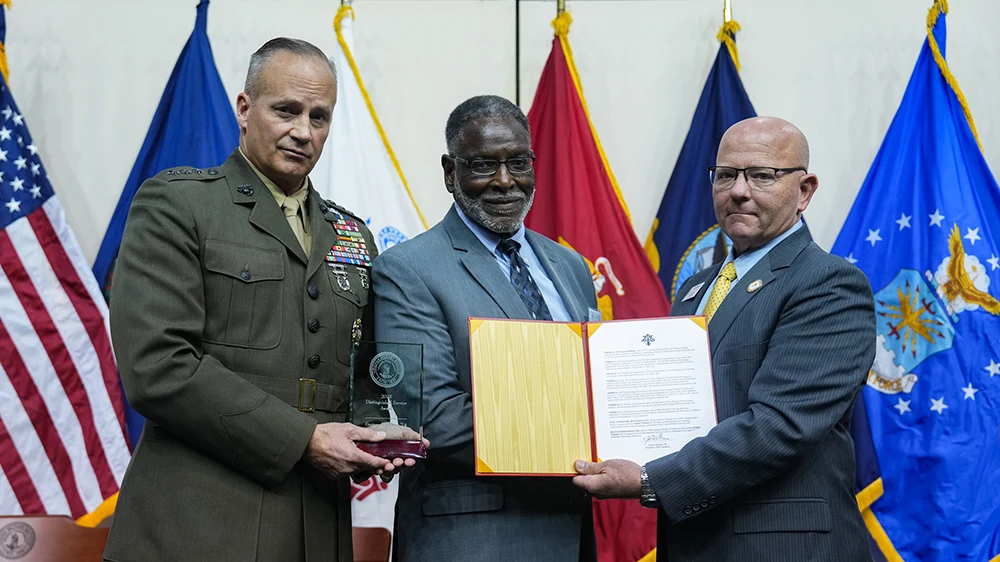All aspects of the Peay Endowment have drawn considerable support from the VMI family. So far, however, the Peay Chairs have garnered the most, and now 11 faculty members across the disciplines hold these chairs.
The Institute’s faculty are renowned for their dedication to improving the academic enterprise and for their devotion to cadets, a devotion that has transformed countless lives. These chairs are a means by which VMI can recruit, reward, and retain faculty, according to the 2023 Annual Report of the Peay Endowment, “whose accomplishments in the domains of teaching, cadet development, research, and citizenship are of the highest order, and whose influence on the lives of cadets is profound and lifelong.”
Jumper credits a large part of this success to the decision of the Jackson-Hope Fund Board of Overseers to consolidate chairs established under its auspices with the Peay Chairs program. “I give a lot of credit to the leaders of the Jackson-Hope Fund, such as G.G. Phillips Jr. ’60, for this change, which considerably reduced the administrative burden.”
Slater recalls that when he was a cadet, having an alumnus as a professor was not a rare thing. “Some departments had several, and many of the true legends among our faculty were alumni. They had a feel for the place, and they understood the value of the way VMI did things.”
The goal of the Peay Fellows program is to increase the number of alumni on the faculty by funding 2 years of graduate study for those alumni who have demonstrated the ability, passion, and potential to succeed as college-level faculty and then 2-year terms as instructors-in-residence.
Jumper said, “This program has been more than 10 years in the making. Many people have been trying to find a way to get more alumni onto the faculty while not interfering with the ongoing quest for faculty excellence.”
Brig. Gen. Robert Moreschi, Ph.D., deputy superintendent for academics and dean of the faculty, said of the program’s value, “It demonstrates to current cadets a career path they might not have envisioned for themselves. Donnie and Phil—both of whom are Institute Honors graduates—can talk to cadets about their respective journeys from graduation to commissioning to graduate school. For faculty and staff, having alumni in a department adds a voice to conversations about the VMI experience that is an insider’s view of cadet life, and that is certainly valuable to new employees but also long-time employees.”
Asked about the program’s goals, Slater replied, “I am glad this program is off the ground. In the longer term, I’d love to have 20% of the faculty be alumni, and we now have the method and the means to do it.”
Administered as part of the Institute Honors program, the Peay Merit Scholarships now support eight cadets. To qualify for one of the scholarships, however, the applicants—whether current cadets or aspiring rats—must not only be highly qualified academically but also have demonstrated leadership and a commitment to national service and participated in organized athletics at an elevated level.
According to Moreschi, the scholarship aids in the Institute’s efforts to attract the best young people to VMI. “As the scholarship is a full ride, it allows VMI to better compete for students who might otherwise attend one of the federal service academies or another senior military college. Furthermore, by augmenting our existing merit scholarships, we can make VMI more affordable to additional deserving students.”
Finally, the endowment’s Academic Excellence Fund provides the dean with additional resources to take advantage of new opportunities, reinforce successes, and meet critical needs within the other three components of the Peay Endowment. “General Moreschi works this fund very hard to get the most out of it,” Jumper said. “Wherever he uses it, it certainly helps keep the entire program on track.”
As to the future, the fundraising goal is simple but ambitious: More than double the current size of the endowment to $125 million. “Right now, we’re on the right track,” said Slater. “But there’s a lot more to do, and, therefore, there’s a need for a lot more money.”
When asked how they’d “pitch” the endowment to a potential donor, Slater and Jumper stressed the endowment’s overall goals. “Anyone who is interested in honoring all that General Peay did for VMI and thousands of cadets should know that he appreciates this effort deeply and that any and all support of the endowment means a great deal to him,” replied Jumper.
Slater said, “It’s all about keeping our competitive edge sharp. We need the best faculty to prepare our cadets for their chosen careers. When I was in barracks, I knew two men who became Rhodes Scholars—Si Bunting ’63 and Bob Randolph ’67. In the future, I’d like all cadets and alumni to be able to say something like that. So, we need to make sure we won’t lose high-quality young people to the service academies or other prestigious schools. Overall, I applaud where VMI’s academic program is today. But let’s not get complacent. Let’s not let up. Let’s keep pushing.”





